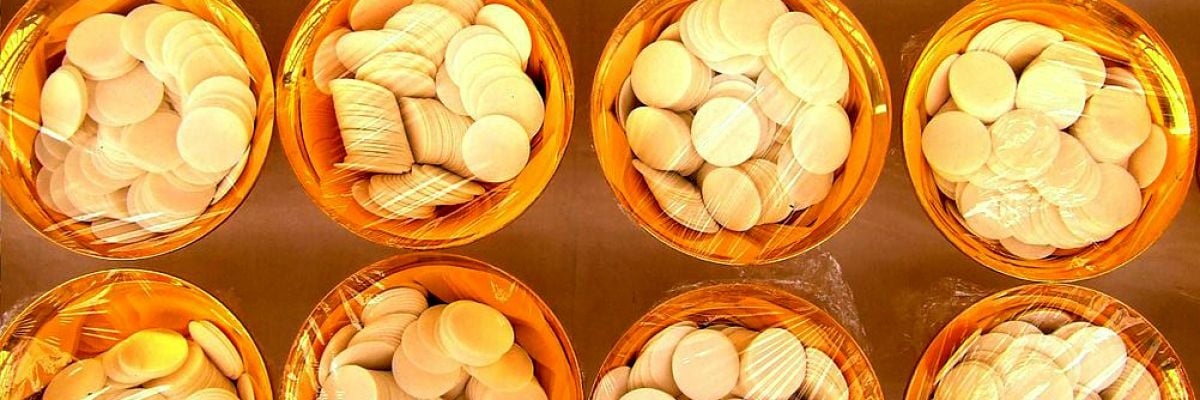
Question:
Answer:
Your question assumes that the doctrine of transubstantiation entails a conversion of the accidental properties of bread. But this doesn’t happen.
The doctrine of transubstantiation states that the substantial reality of bread changes into the substantial reality of Jesus (body, blood, soul, and divinity). In other words, the whatness of bread changes into Jesus. What is bread before the words of consecration is Jesus afterward.
But in the change the accidental properties remain. This means that everything that pertains to the senses remains: what it looks like, what it tastes like, the spatial location it occupies, and the effects it has on the body. As such, transubstantiation doesn’t negate the fact that those with celiac disease can still be affected negatively when partaking of the host. Just as the taste buds taste unleavened bread when consuming the Eucharist, so to the body with the autoimmune disorder of celiac disease reacts to gluten when the host is ingested.
The same line of reasoning applies to the precious blood under the form of wine. The effect that wine normally has on the body remains even after the words of consecration. The substantial reality changes, but that which pertains to the senses (the accidents) does not.



